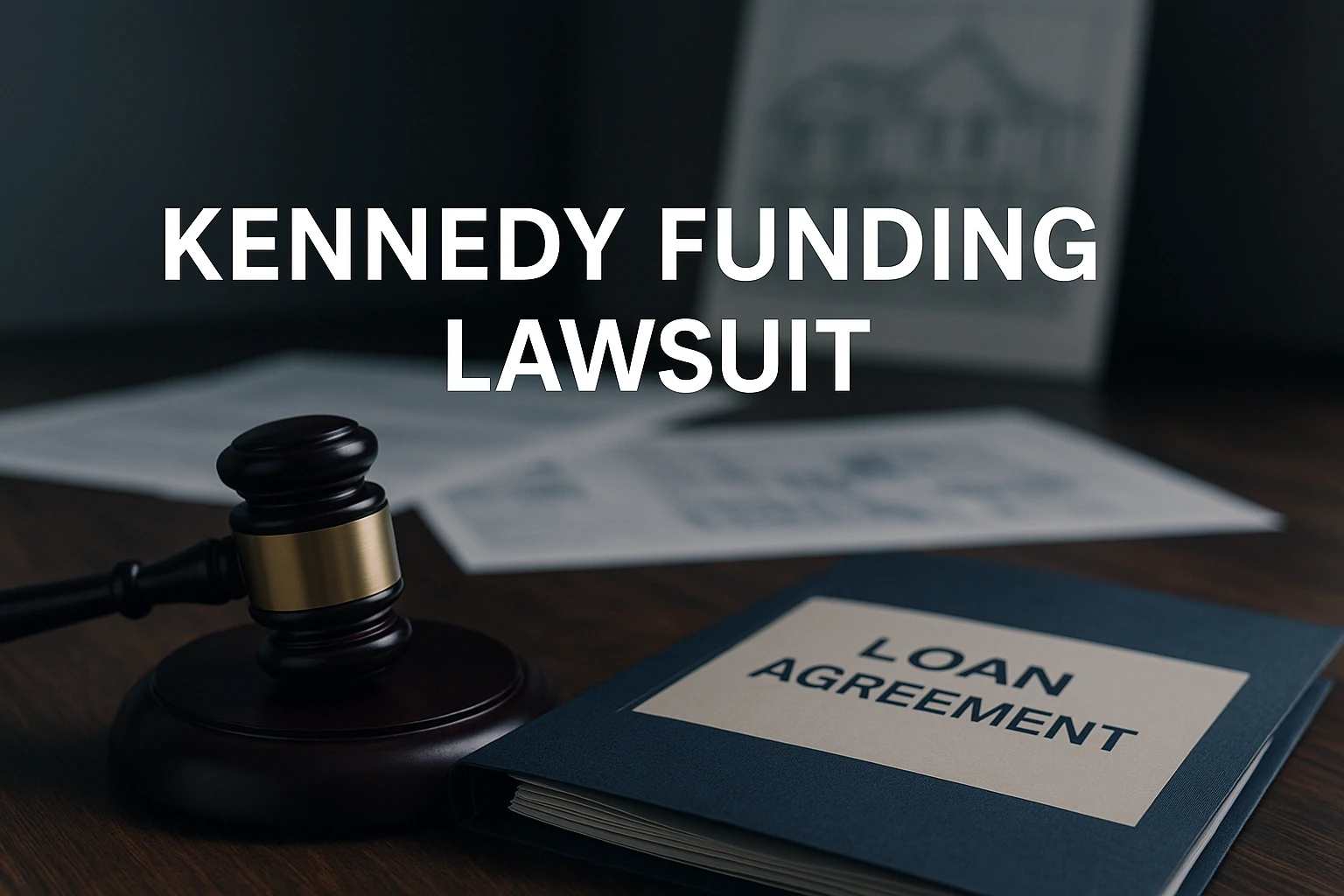Lawsuits can shake the trust between businesses and clients. When a large lender gets sued, people want answers. That is what happened in the Kennedy Funding lawsuit. This legal case raised many questions about loans, real estate deals, and what borrowers can expect.
Kennedy Funding is a well-known name in private lending. The company offers fast loans for real estate projects. Many investors turn to them when banks say no. But fast money can come with risks. Some borrowers now say that Kennedy Funding crossed the line.
The lawsuit shows a breakdown in trust. People claimed they were promised loans that never came. Others said the terms were unfair. These claims point to bigger issues in the world of high-interest loans. They also show what can go wrong when deals are not clear.
This article explains the Kennedy Funding lawsuit in simple terms. It walks through what happened, who got involved, and what the claims were. It also explores how this case could affect future borrowers and the private lending world.
Who Is Kennedy Funding?
Kennedy Funding is a private lender based in New Jersey. It offers fast loans for real estate projects. Many buyers turn to the company when banks say no. The loan process moves quickly, often in just a few days.
The lender works in the United States and other countries. It takes on high-risk deals and clients with poor credit. These loans often include high interest and short repayment times.
People use the funds to buy land, build property, or cover debts. Kennedy Funding fills a space that banks leave open. That gives it a strong place in the loan market.
But power comes with risk. Some deals break down. When that happens, people get hurt. This is how the lawsuit started.
What Sparked the Lawsuit?
The Kennedy Funding lawsuit started when borrowers accused the company of shady lending practices. These were not just small complaints. People said they lost time, money, and property.
The most common claim was that Kennedy Funding promised a loan but never delivered. Some borrowers said they paid large fees up front. They expected the loan to close soon after. But the loan never came through.
Others claimed that Kennedy Funding added new terms at the last minute. This made the loan impossible to accept. Still, the company kept the upfront fees. That left borrowers with no loan and no money.
These claims made people question the fairness of the lending process. It also made them ask if Kennedy Funding followed the rules.
What Went Wrong
The lawsuit centered on three major issues. First, the claim of false promises. Borrowers said they were told they would get funding. But after paying fees and waiting, they got nothing.
Second, the issue of transparency. Many borrowers claimed they never saw the full loan terms until it was too late. They felt misled.
Third, the use of upfront fees. These fees were supposed to cover things like appraisals or legal reviews. But in many cases, the loan never moved past this stage. People said Kennedy Funding kept the fees even when no loan happened.
Together, these issues raised legal concerns. The courts had to decide if Kennedy Funding broke any laws or simply ran a high-risk business.
Impact on Borrowers
The lawsuit left many borrowers feeling betrayed. Some lost large sums of money. Others lost the chance to buy property. A few even faced foreclosure because the promised funding never came.
Borrowers who turned to Kennedy Funding often had no other options. Many already faced money trouble. They hoped for a quick fix. The lawsuit showed how that hope turned into regret.
It also made people more cautious. Many borrowers now ask more questions before working with private lenders. They read loan terms more closely. They also look for red flags, like big fees or delays in paperwork.
The case became a warning for others. It showed that even big lenders can fail to follow through.
Kennedy Funding’s Response
Kennedy Funding denied all wrongdoing. The company said that it followed proper procedures. It claimed that some deals fell through because of issues on the borrower’s side.
They said that due diligence takes time. Not every application will lead to a loan. They also argued that upfront fees are part of the process. These fees cover real costs, even if the loan does not close.
Kennedy Funding also said that they help many people who cannot get bank loans. They provide a service that others will not. The company stood by its track record.
Still, the lawsuit hurt its image. Even if the court sides with them, the case raised doubts in the minds of future clients.
Legal Outcome and Case Status
As of now, parts of the case are still active. Some claims were settled. Others were dismissed. But some are still in court.
The legal process takes time. Each case has different facts. Some borrowers signed detailed contracts that may protect Kennedy Funding. Others may prove fraud or unfair treatment.
It is not yet clear how it will all end. But the case already changed how people see private lending.
What Borrowers Should Learn
This lawsuit holds many lessons. Other cases, like the 100 Day Dream Home Lawsuit, also show why borrowers must stay alert. First, always read the fine print.
Second, research the lender. Look at reviews. Check if the company has faced lawsuits before. Ask past clients if they got the loan as promised.
Third, know the risks. Private loans come with high costs. They also carry more risk than bank loans. If something feels wrong, walk away.
Many borrowers trusted Kennedy Funding and got hurt. Others got the loan and finished their project. The key is to stay alert.
A Bigger Look at Private Lending
This lawsuit also shines a light on the private loan market. These lenders help people banks will not. But they also work with fewer rules. That can lead to abuse.
Some lenders make big promises and ask for big fees. But they never plan to close the loan. Others delay deals to collect more fees. Some only approve low-risk deals but market to high-risk borrowers.
The rules around private lending vary by state. Some states offer better protection. Others leave borrowers exposed. This lawsuit may push lawmakers to create stronger rules. Firms like Perkins Coie influence major legal change through amicus briefs in key cases.
Until then, it is up to each borrower to stay informed.
Will This Hurt Kennedy Funding Long-Term?
Kennedy Funding still operates. The lawsuit did not shut it down. But it did damage its name. Trust is key in finance. Once lost, it is hard to get back.
The company may lose some clients. It may need to change how it works. It could face new rules or watchdogs.
Other lenders will also feel the effects. They may change their contracts or fee policies. Some may offer clearer terms to avoid the same trouble.
The case left a mark. Even if Kennedy Funding wins in court, it lost something greater—public confidence.
Conclusion
The Kennedy Funding lawsuit reminds us to stay cautious in money matters. Private lending can help in tough times. But it can also lead to bigger problems if deals go wrong.
Borrowers must protect themselves. Ask hard questions. Read all paperwork. Do not rush, even when time feels short.
This case shows that lawsuits do not always mean clear wins or losses. But they always leave lessons. People now know what to watch for in high-stakes loan deals.
Kennedy Funding offered fast cash to many. Some got what they needed. Others got stuck in court. The truth lies somewhere in between.
Disclaimer: This article is for information only. It does not offer legal advice. Always speak with a lawyer before taking legal or financial action.




